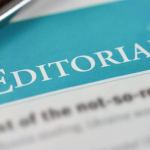I Ahmed Wani:
In the aftermath of BJP’s triumphant march in the Delhi Assembly Elections of 2025, a political tempest is brewing in the serene valleys of Jammu & Kashmir, signaling a seismic shift in its political dynamics. The BJP’s conquest in Delhi, securing a staggering 48 seats, has not only reshaped the capital’s political narrative but has also sent shockwaves through the political corridors of J&K, hinting at a transformative realignment.
Omar Abdullah’s recent jibe at the INDIA bloc, “Oor lado apes ma,” (Go on, fight more) was a clear indication of the internal turmoil and strategic rethinking within opposition ranks post-election. This comment, made in the wake of BJP’s victory, was not just a critique but a harbinger of a potential tectonic shift in J&K politics. Following this, Abdullah’s meeting with the Home Minister was less of a courtesy call and more of a strategic maneuver, suggesting that the political chessboard in J&K is being reset, with pieces moving in unforeseen directions.
The Farooq Abdullah Speculation: Denial from Within
A major twist emerged with speculations about Dr. Farooq Abdullah engaging in backchannel communications with the BJP—an alleged drastic pivot from his traditional anti-BJP stance. However, this claim was swiftly denied by Tanvir Sadiq, a senior National Conference leader, who took to X to dismiss the reports published by Rising Kashmir and its correspondent Arvind Sharma.
Sadiq’s statement was unequivocal:
“Rising Kashmir and its correspondent Arvind Sharma have proven to be barefaced liars, peddling fiction instead of facts. Let’s set the record straight. Dr Farooq Abdullah Sb has not been in Delhi for the past four days meeting BJP leaders. He was in Bombay and only transited briefly through Delhi on his way there. At no point did he meet any BJP leaders.”
Sadiq also rubbished claims that Dr. Abdullah was facilitating a meeting between the Chief Minister of J&K and the Home Minister, calling such assertions “laughable” and stressing that these meetings have been routine in governance. He further accused Rising Kashmir of abandoning journalism for “petty propaganda.”
Political Realignments: Shifting Alliances or Mere Speculation?
Despite Sadiq’s denial, the larger question remains—how will regional leaders navigate BJP’s expanding influence? The phrase “Kashmir’s seasonal stalwarts will start tilting saffron” encapsulates the phenomenon where local leaders like Syed Altaf Bukhari, Sajad Lone, and Mehbooba Mufti are seen recalibrating their political compasses.
Syed Altaf Bukhari, previously in political hibernation, is expected to re-emerge, likely aligning more closely with BJP’s political stance.
Sajad Lone, once vocal against BJP, may now view engagement with the saffron party as a strategic necessity.
Mehbooba Mufti, known for her sharp political instincts, is likely to sharpen her strategies against the Jammu & Kashmir National Conference (JKNC), potentially carving out a new role for herself within this shifting landscape.
Meanwhile, Omar Abdullah’s approach of calm diplomacy with the Home Ministry signals a calculated effort to maintain relevance and leverage in this evolving scenario. His engagement with central leadership appears to be a strategic move to ensure JKNC’s interests remain intact.
Opposition in Turmoil: The INDIA Bloc’s Cracks Widen
Beyond J&K, the BJP’s Delhi victory has had national implications, particularly for the opposition’s INDIA bloc. The AAP’s defeat has raised serious doubts about their leadership and strategy, while the Congress’s failure to capitalize on the situation further muddles the opposition’s position. The decision by Congress to contest against AAP now appears to have backfired, exposing cracks within the bloc that BJP has been quick to exploit.
As BJP continues to focus on upcoming elections in other states, the emergence of smaller parties in J&K—likened to mushrooms sprouting in the rainy season—suggests a political ecosystem ripe for change. These parties could either fill the void left by major players or become strategic tools in the larger game, influencing local dynamics in ways yet to unfold.
Whether the speculations about Farooq Abdullah’s return to the NDA hold any truth or not, the undeniable reality is that Jammu & Kashmir’s political landscape is on the brink of a significant transformation.Behind the Story: This analysis stems from my initial reaction on February 8, 2025, after BJP’s 48-seat Delhi victory. Early speculation about Farooq Abdullah’s realignment was later denied by Tanvir Sadiq, reflecting the fast-evolving political landscape of Jammu & Kashmir in BJP’s rising influence.




